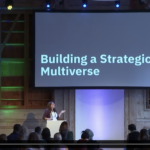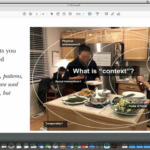
by JAN CHIPCHASE, Studio D Radiodurans
To understand the impact research can have requires an appreciation of how content ebbs and flows in an organisation, how ideas are passed from person to person and adopted, and how institutions internalise information, politics, and an acute sense of—wait for it—timing. A well-thought-out sharing process recognises the work of the team and is framed by the sharer. Poorly thought-out sharing marginalises team members and partners, building resentment that lives long after the project is completed.
This article, drawn from The Field Study Handbook, delves into the art of sharing for impact.
Why We Share
Research is shared to evangelise a point of view. It positions the individual, team, and organisation as thought leaders, and primes the audience for what is to come. The primary advantage of thought leadership is not, as many observers believe, the elevated status of the sharer, but rather that it attracts conversations from a nascent community. Which, in turn, makes the work...












